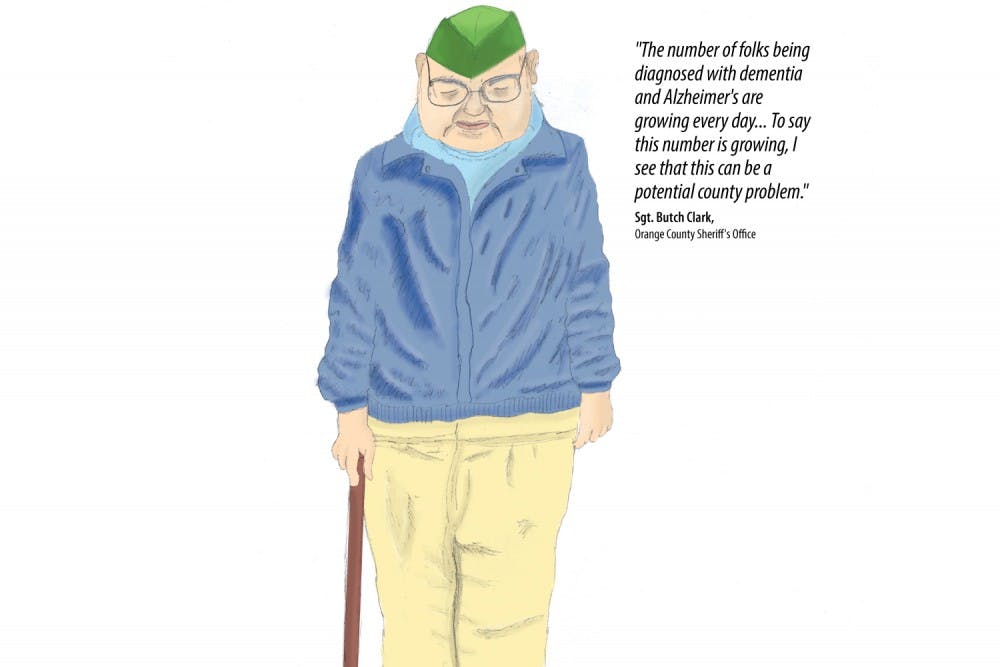Clark said the problem is widespread.
“It is a nationally growing problem based off of the growing number of elderly with dementia and Alzheimer’s,” he said.
Janice Tyler, director of the Orange County Department on Aging, said the department works to better the lives of the elderly, families and caregivers.
She said issues regarding transportation and housing may be contributing to the number of elderly people being reported as missing or lost.
“Transportation is a big issue for older adults needing to get up and drive,” she said.
“It’s difficult to live in an area that is walking friendly. We are currently planning for housing that is more convenient in location.”
Mary Fraser, administrator for the Orange County Department on Aging, said the county, as well as the country, must prepare to adjust care and take preventative measures for the elderly demographic.
She said the Life Track program is a great start.
“I think that it is very useful to families trying to keep their loved ones safe,” she said.
“This offers a safety precaution.”
Clark said the Life Track program does not monitor individuals but has the ability to track them using a bracelet that emits an FM signal.
“This program brings a peace of mind to the family and the caregivers,” he said. “It is a safety net.”
To get the day's news and headlines in your inbox each morning, sign up for our email newsletters.
He said this program is free for any individual who has been diagnosed with a cognitive impairment disease or condition and requires a 24-hour caregiver.
“It’s one solution to help with this problem,” Tyler said.
“If there are families within our community that have individuals with cognitive impairment, we encourage them to also come to us for help.”
Fraser said that by embracing these technological advancements, people with impaired cognitive abilities can continue to enjoy their independence.
“There is no reason to not use technology for the benefit of individuals that are living at home with their family, instead of having them live in an institution,” Fraser said.
Fraser said one in five Americans will be over the age of 65 by 2030. This rapid transition in population in regards to age especially affects Orange County, she said.
“Since Orange County is a retirement destination, we expect more elderly to arrive to our area,” she said.
Tyler said the county should be ready to accommodate a growing number of senior citizens.
“Just by the sheer number of older individuals, we have developed a growing older demographic in the county,” Tyler said.
Ryan Comfort, an academic advisor at UNC, said he and his partner recently encountered an elderly man who had gotten lost from his home.
“Together we went back out to find him,” he said in an email.
“After a few minutes talking to the lost man, with all three of us trying to figure out where he lived, I called the Chapel Hill Police to give us a hand in getting him home.
“It was beyond what we could do to help, but I knew that the police would be to get him home safely.”
Comfort said this issue is important to the county and to his culture.
As technology advances to combat this issue, Comfort said he hopes human-to-human care and compassion will always be the most effective solution.
“In Ojibwe culture, my culture, elders hold the highest, most respected standing in the community, and the whole community works to support them,” he said.
“My grandmother has Alzheimer’s, and I know that if she had went out for a walk and became lost that someone would stop to help her.”
city@dailytarheel.com



